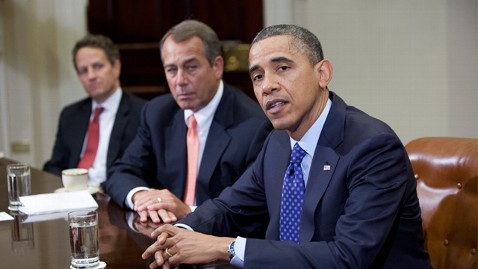The economy generated 146,000 new jobs in November and unemployment fell to 7.7 percent, better than economists expected, despite worries that superstorm Sandy and the looming fiscal cliff would dampen hiring.
There are still 12 million people unemployed in the country, but the Labor Department said Sandy did not significantly affect jobs.
Many economists had expected employers to have added about 90,000 jobs, causing the unemployment rate to tick up slightly.
The Labor Department's Bureau of Labor Statistics dialed back job gains for the previous two months. In October, the U.S. economy added 138,000 jobs, not the 171,000 reported before the election. The jobs added in September were also revised downward to 132,000 from 148,000.
Stephen Bronars, chief economist with Welch Consulting in Washington, D.C., said many economists believed Superstorm Sandy would have influenced Friday's jobs report after causing devastation especially in the Caribbean and U.S. Northeast.
Businesses and residents in the tri-state region of New York, New Jersey and Connecticut, which produce about one-eighth of U.S. GDP, experienced prolonged power outages and major infrastructure damage.
Bronars said, "Sandy hit the U.S. at a place where it inflicted close to the maximal possible economic damage from a storm that size."
New Jersey and New York were the hardest hit, with at least 120,000 jobs lost, at least temporarily, in those two states.
On Wednesday, payroll provider ADP, reported that private companies added 118,000 jobs in November, down from 157,000 in October. However, ADP includes in its figures people as employed if they remain on payroll, whereas the Labor Department's includes workers as employed if they are paid.
Now that election season is over, employers and investors are surrounded by worries from another uncertainty, the fiscal cliff.
Read more: Eliminating Charitable Deduction Would Help Budget, Hurt Charities
Bronars said the November report will not have quite picked up effects of the looming fiscal cliff, as employers prepare for a mix of government spending cuts and tax increases after the end of the year.
He said the effects of the failure thus far to reach a budget deal are more likely to show up in the December jobs report which will be released in early January.
It is not entirely certain whether the payroll tax holiday will be extended. If it's not, it may raise the cost of hiring workers.
"The next most important issue is sequestration which would bring big cuts to certain employers that depend on government contractors and other employers that indirectly provide support to government contractors," Bronars said. "Employers in these industries may well take a wait and see attitude for hiring until the fiscal issues are resolved."
Concerns about a higher marginal tax rate for top earners, some of whom are employers, may take longer to show a noticeable effect in jobs figures as the disincentive to top earners may take longer to indirectly affect hiring decisions.



















